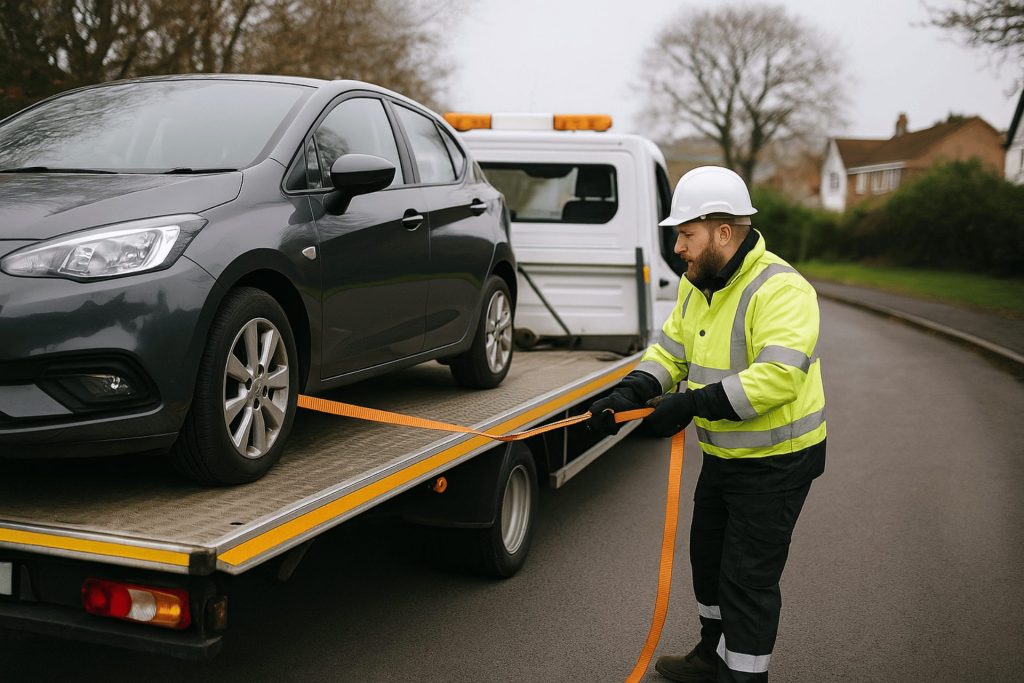Choosing the Right Recovery for Cars in Swansea When It Counts

When your car gives up on you, you don’t have hours to shop around – you need help, and you need it fast. That’s when most people reach for their phone and search “recovery for cars”. But not all recovery services are equal, and the choice you make in those first few minutes can decide whether your day gets back on track quickly or turns into an even bigger headache.
We’ve been providing car recovery in Swansea for years, and in that time, we’ve seen the difference a good choice makes – and the problems that come from choosing poorly. Here’s what you need to know.
What to look for in a car recovery service
1. Speed of response
In breakdowns, every minute feels longer than it is. Ask for an honest ETA – a local team is often faster than a national one.
2. The right equipment
Different cars need different recovery methods. A sports car with low clearance might need a flatbed with extended ramps. An EV might need special transport to avoid drivetrain damage.
3. Clear pricing
Hidden extras can turn a “cheap” tow into an expensive one. Make sure the quote includes call-out, mileage, and any additional charges.
4. Insurance cover
If your car is damaged during recovery, you need to know you’re protected. Always check that the provider has the right insurance.
Swansea-specific factors
Recovering cars in Swansea isn’t the same as in other cities. We deal with:
- Steep residential streets in Mayhill and Townhill require careful loading.
- Coastal conditions can make loading and transport tricky in high winds or heavy rain.
- Narrow terraced roads in Uplands and Mount Pleasant can be difficult for larger trucks.
- Seasonal traffic on routes like Fabian Way, especially during summer and sporting events.
A recovery team that knows these quirks can plan routes and send the right vehicle for your location, cutting down on delays.
Common mistakes drivers make when arranging recovery
Only going for the cheapest option
We’ve covered this before – low prices sometimes mean cutting corners on equipment, training, or insurance.
Not giving accurate details
Telling a recovery driver you’re “near Swansea” isn’t enough. Use landmarks, street names, or GPS location sharing to avoid wasted time.
Not asking where the car will be taken
Some services only take your vehicle to the nearest garage, not necessarily your preferred one. Make sure you agree on the destination before the truck sets off.
Real call-out: The EV recovery on Morfa Road
One wet winter afternoon, we got a call from a driver whose electric car had lost all power on Morfa Road. A standard tow would have risked serious damage, so we sent a flatbed designed for EV transport. The truck’s winch allowed us to load without rotating the drive wheels, and within 40 minutes, the car was safely at the dealership.
The driver admitted they’d nearly gone with a cheaper tow, which wouldn’t have had the right equipment. That decision could have cost thousands in repairs.
Why local recovery is worth it
When you search for recovery for cars, you want a team that can actually reach you quickly. Local operators can often be with you in under 30 minutes and are familiar with the traffic patterns, shortcuts, and potential obstacles that could slow things down.
We’ve even had situations where we were on-site before a national provider had confirmed their dispatch time. That’s the benefit of being based right here in Swansea.
Final thoughts
Recovery for cars is about more than just moving a vehicle – it’s about doing it safely, quickly, and in a way that suits your situation. Whether you’re stranded on the M4, stuck on a steep hill, or broken down outside the supermarket, the right recovery team can make all the difference.
If your car lets you down and you need help right now, we’re ready. From quick roadside fixes to full transport, we’ll get you moving again – without the stress.



